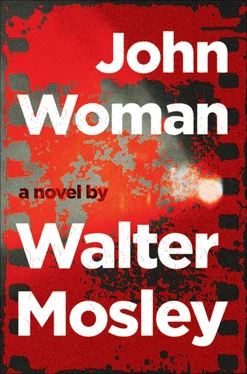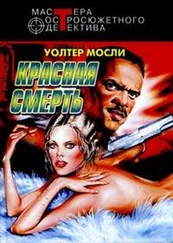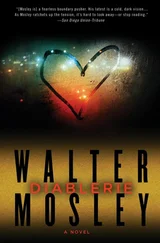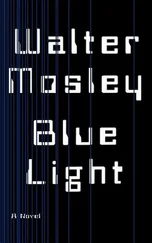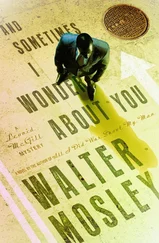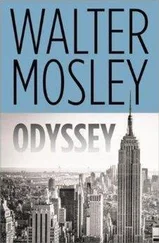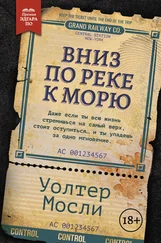“No,” France said. “I haven’t spoken to anyone about the old days. I had a girlfriend for a while, Alison Dawson. I did talk to her about you and Herman but she died five years ago and didn’t have any friends but me. No, CC, it’s probably somebody knows your mother. She always had lots of friends. She liked to talk if I remember right.”
“That she did,” John said.
“It was probably her.”
“Probably so, France,” John agreed. “It’s not important anyway. I was on my way to Seattle for a job interview. I read about you on the web so I thought I’d drop by.”
“What do the letters say?”
“Not much. Just about the Arbuckle and dad. I can’t read the signature is the problem. Postmark is from Arizona so I knew it wasn’t you but I thought maybe it was someone we both knew.”
“No... You want to stay for dinner, CC?”
Meat loaf with mashed potatoes made from a powder, broccoli spears and unseasoned apple pie made up the meal. The coffee was decaffeinated and there was no salt shaker in evidence.
France talked about prejudice against the elderly and how when so many people got old they lost heart.
“It’d be better if they offered us suicide alternatives,” Bickman said at a table with four of his men friends and John. “We could go out with good liquor, cigarettes and watching movies with naked girls while they pumped a sleeping gas in real slow. Maybe two or three of us could pass on together talking about the olds days.”
“That sounds grand,” Timor Parker, a retired plumber from Redwood City, said. “Maybe we could have music too... and dancin’.”
Two orderlies on duty watched the table closely. John thought that if he wasn’t visiting they might have tried to separate the men.
“If I had my old twenty-two they wouldn’t fuck with us,” France said when John shared his notion. “Bethy, my youngest, took it out of my suitcase when she put me here. But you know if I had my pistol those apes would show me some respect.”
“I have to get going, France,” John said, realizing that his presence was exciting the older man to these protestations of violence.
“You go on, son,” France said. “And don’t you worry about those letters or nuthin’. I got it all covered.”
“Covered how, France?”
“Just don’t you worry. As long as there’s breath in this body I won’t let them hurt you.”
The next morning John boarded a flight to Miami. The acronym for the airport was MIA. The idea of travel and being missing in action tickled the history professor.
He took a bus into town, found a Cuban diner and ordered a meal that consisted of a pressed ham and cheese sandwich with pickles, Caesar salad, and beer from a local brewery. He asked the waiter if there was a pay phone anywhere around. After a moment of consideration the copper-skinned mustachioed man said, “Down at the library. Not too many booths anymore. But they have them inside the library: the old kind with levered doors, wood seats and everything. Two blocks up and half a block over on your left.”
John had gotten two rolls of quarters from a bank in Portland before driving his rental car to Cavaliers. Donning cotton gloves he broke open a roll of quarters and called the operator, directing the woman to dial a Manhattan phone number. She asked for three dollars and he dropped twelve quarters into the old-fashioned pay phone. Each descending coin conjured a gong.
Before the phone could ring a man announced, “Hotline.”
“May I speak to Lieutenant Van Dyne.”
“She’s not here at the moment. Can I help you?”
“Not really. I can only speak to her.”
“Then you’ll have to leave a message.”
“Tell her that Cornelius Jones called.”
After a brief pause the man asked, “Who?”
“The man she’s looking for.”
“Hold on.”
Four minutes passed on John’s father’s Timex when a woman said, “This is Lieutenant Van Dyne.”
“I recognize your voice, Lieutenant.”
“Who is this?”
“The first time we met was in the basement office of the old Arbuckle. You were Detective Margolis back then.” John had designed the sentence to convince his ex-lover of his identity without referring to the intimate nature of their relationship. He thought the call might be recorded and didn’t want to cause her trouble.
“Cornelius Jones.”
“Yes. I heard that you were looking for me and I remembered how nice you were, how understanding. I thought I’d call and say hi.”
“I’d like it if you came in for a talk, Mr. Jones.”
“That would be nice but I’m out of state now.”
“Where?”
“Minnesota. Been working as a salesman out here for the last few years.”
“I could come to you.”
“No. That would be way too much.”
“We want to talk to you.”
“Yes, something to do with Chapman Lorraine I heard.”
“He was murdered.”
“That’s awful.”
“Killed in the projectionist’s booth of the Arbuckle.”
“You don’t need to go out of your way, Lieutenant. I don’t know anything about Lorraine. That’s what I called to tell you.”
“We have to meet, Mr. Jones.”
“The next time I’m in New York I’ll call.”
“This is serious.”
“I’m sure it is. But as I said, I have nothing to do with it. It’s been nice hearing your voice again, Detective Van Dyne. Bye now.”
That evening John boarded a flight to Houston. He stayed there in an airport hotel for three days writing a monograph titled The Inescapable, Unavoidable Democracy of Culture. On the fourth morning, the handwritten first draft of the sixty-page essay completed, he flew back home, arriving at midnight.
It wasn’t until the next morning that he saw the bright yellow broadside pasted up on the external plaster wall of faculty housing.
The lettering was bloodred: VILLAINS IN OUR MIDST! The list of names and crimes, collected by Carlinda and her coconspirators, were laid out like the cast and characters in a movie or play. Someone had tried to rip down and deface the poster but the epoxy sheet resisted most attempts to mute its accusations.
The list consisted of nine professors down the left side of the document including Eubanks and Carmody; opposite each name was a crime that they had, supposedly, committed. There was a wife-beater, an ex-member of a revolutionary cult in Detroit, three fake degrees, an embezzler, a female physical education teacher who was born a man, a convicted felon and a pederast. At the bottom of the poster was the promise that future revelations about the perpetrators of desertion, robbery, theft, hate crimes and assault among others would be made.
On his walk to Prometheus Hall John saw seventeen yellow broadsides pasted up on walls, palm tree trunks and announcement boards. In each instance there had been attempts to rip down, deface, cover up and/or write over the offending document but these attempts had more or less failed.
The damage had already been done. Cell phone cameras had certainly disseminated the image around the school and beyond.
He followed his usual path to the great hall and up the stairs to his Tuesday seminar.
Nearly two hundred students were there to meet him.
“The class has grown since last Thursday,” John said from behind the semitransparent green plastic lectern.
“We want to know what you have to say about the posters,” a young woman called out.
John looked around but could not locate the speaker. He didn’t recognize the voice.
“This is a history class,” he said, “not a course on current events.”
His declaration elicited some groans.
“I just got back,” he added. “You guys know more than I do.”
Читать дальше
